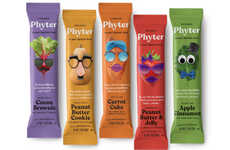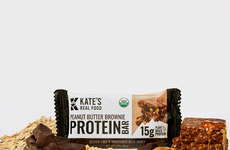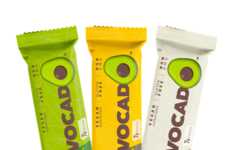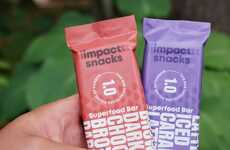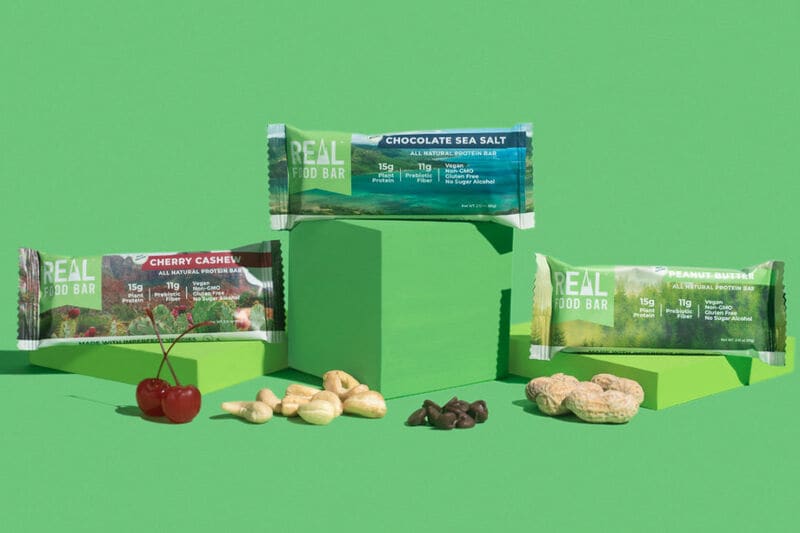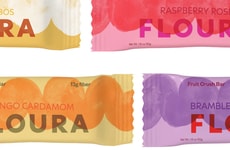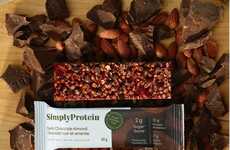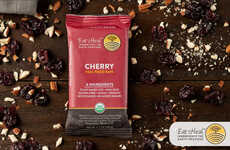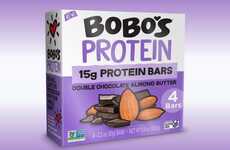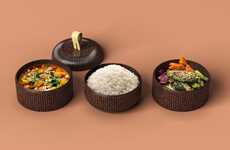
Real Food Bar Makes the Most of Surplus Veggies Like Kale & Cauliflower
Laura McQuarrie — February 22, 2021 — Eco
References: realfoodbar & foodbusinessnews.net
Real Food Bar makes plant-based protein bars by using surplus vegetables and turning them into powdered ingredients that pack nutritional value into bite-sized snacks. The plant-based protein bars make the most of upcycled ingredients like kale, sweet potato and cauliflower, as well as other ingredients like pea protein, cashew butter, tapioca fiber, agave syrup, coconut oil, pea protein crisps, sunflower oil, sea salt, vanilla extract and sunflower lecithin.
The certified organic and vegan bars boast half the amount of sugar as leading nutrition bars, plus twice the fiber and half the net carbs. The free-from bars boast ingredients lists that avoid gluten, soy, dairy and GMOs. The plant-based bars are available in flavorful varieties like cherry cashew, chocolate sea salt and peanut butter. Soon, Real Food Bar will be expanding its lineup with an espresso chip flavor.
The certified organic and vegan bars boast half the amount of sugar as leading nutrition bars, plus twice the fiber and half the net carbs. The free-from bars boast ingredients lists that avoid gluten, soy, dairy and GMOs. The plant-based bars are available in flavorful varieties like cherry cashew, chocolate sea salt and peanut butter. Soon, Real Food Bar will be expanding its lineup with an espresso chip flavor.
Trend Themes
1. Upcycling Food - Real Food Bar's use of surplus vegetables to create healthy protein bars represents a growing trend of upcycling food waste into innovative food products.
2. Plant-based Protein - Real Food Bar taps into the trend of plant-based protein as more consumers seek ethical, sustainable and healthy food choices.
3. Low-sugar Snacks - Real Food Bar's commitment to half the amount of sugar as leading nutrition bars reflects the trend of low-sugar snacks, which aligns with increasing consumer interest in wellness and healthful eating.
Industry Implications
1. Food and Beverage - There are multiple opportunities for disruptive innovation in the food industry using upcycling methods to create healthy snacks and reduce food waste.
2. Health and Wellness - The health and wellness industry can take advantage of the trend of low-sugar and plant-based snacks to offer more ethical and sustainable alternatives.
3. Agriculture - The agriculture industry can use upcycling methods to reduce food waste and create new products, such as powdered vegetable ingredients for protein bars, to meet increasing demand for healthy and sustainable food sources.
5.2
Score
Popularity
Activity
Freshness

